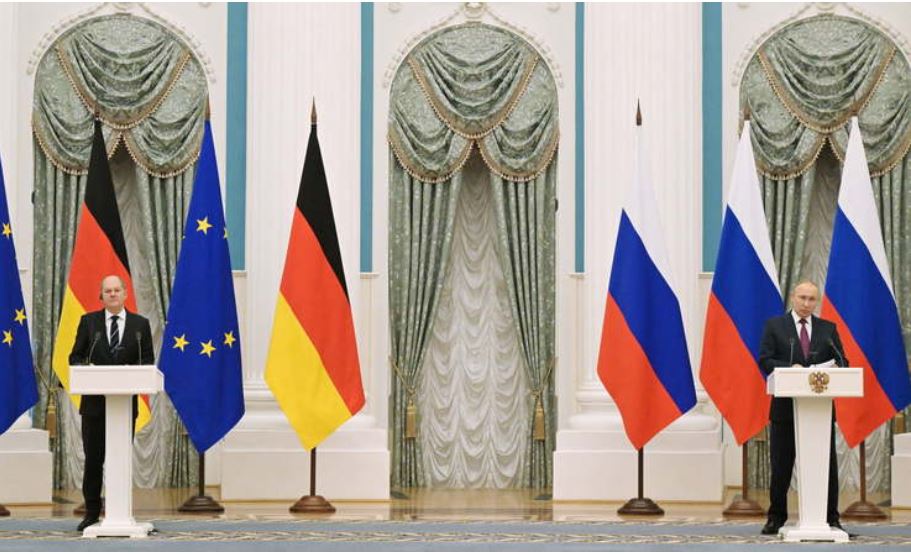By: V4 Agency
The meeting between President Vladimir Putin and Chancellor Olaf Scholz, originally scheduled for four hours, ended sooner. Following the talks Vladimir Putin stressed that Russia was still ready to engage in dialogue with the European Union and all Western states, but Russia’s security interests must be taken into account. Olaf Scholz, on the other hand, reiterated warnings to Russia against staging an attack on Ukraine.
After visiting Kyiv, German Chancellor Olaf Scholz travelled to Moscow to meet with Vladimir Putin amid the tensions between Russia and the West. It has been the first personal meeting of the two leaders since Scholz took office. The meeting, originally slated to last four hours, ended in three, with the leaders speaking to the public of the latest developments at a joint press conference.
Vladimir Putin spoke of Russia’s readiness to negotiate about building confidence with the United States and NATO, while insisting on due account of the country’s security interests and security demands.
“We do not want war in Europe. It is our absolute duty as heads of government that Europe does not see an escalation into war,” the Russian president said, adding, however, that his country had still not received a positive response to its security demands vis-a-vis the United States and NATO.
Vladimir Putin said Germany was “one of Russia’s most important partners” and wanted to work more closely with Berlin. The President recalled that the Nord Stream-2 gas pipeline, built without “political overtones”, had been operational since December and urged that it is put into use to serve Europe’s energy security. He also confirmed that, if economically feasible, Russia is ready to resume gas supplies after 2024 , the expiration of the long-term bilateral agreement.
Vladimir Putin also commented on a resolution by the lower house of the Russian parliament on Tuesday which proposed to recognise the two breakaway “people’s republics” in south-eastern Ukraine. He expressed his hope that Germany and France will exert pressure on Kyiv to implement the Minsk agreements, as he believes that the Donetsk issue can still be resolved through their implementation. Mr Putin stated that the treatment of ethnic Russians in the Donbass region of eastern Ukraine is essentially “genocide”.
German Chancellor Olaf Scholz, however, said that Russian recognition of Ukrainian separatists would be a violation of the Minsk agreements and would lead to a “political catastrophe.” Regarding the tensions on the Ukrainian border, he said the announcement of the withdrawal of some Russian troops near the border was a good sign and hoped that more troops would be withdrawn in the near future. War must be avoided at all costs, and all security problems must be solved through negotiations, the Chancellor said.
“Dialogue cannot end in a cul de sac, that would be a disaster for everyone. It is important to go the road of diplomacy so as to avoid war in Europe,” the Chancellor explained, stressing that people of his generation find it hard to imagine war in Europe. Mr Scholz also noted that lasting European security must be built not against Russia, but together with it. He added that NATO enlargement to the East will not be on the agenda while he and President Putin are in office.
On the role of the Nord Stream 2 pipeline in the Ukrainian conflict, the Chancellor said that “as far as the pipeline itself is concerned, everyone knows what is going on.” He added that the German government is committed to the operation of European gas transit through Ukraine, Belarus and Poland via Nord Stream 1, in line with existing agreements. However, he pointed out that the consequences of an invasion of Ukraine would be far-reaching.

